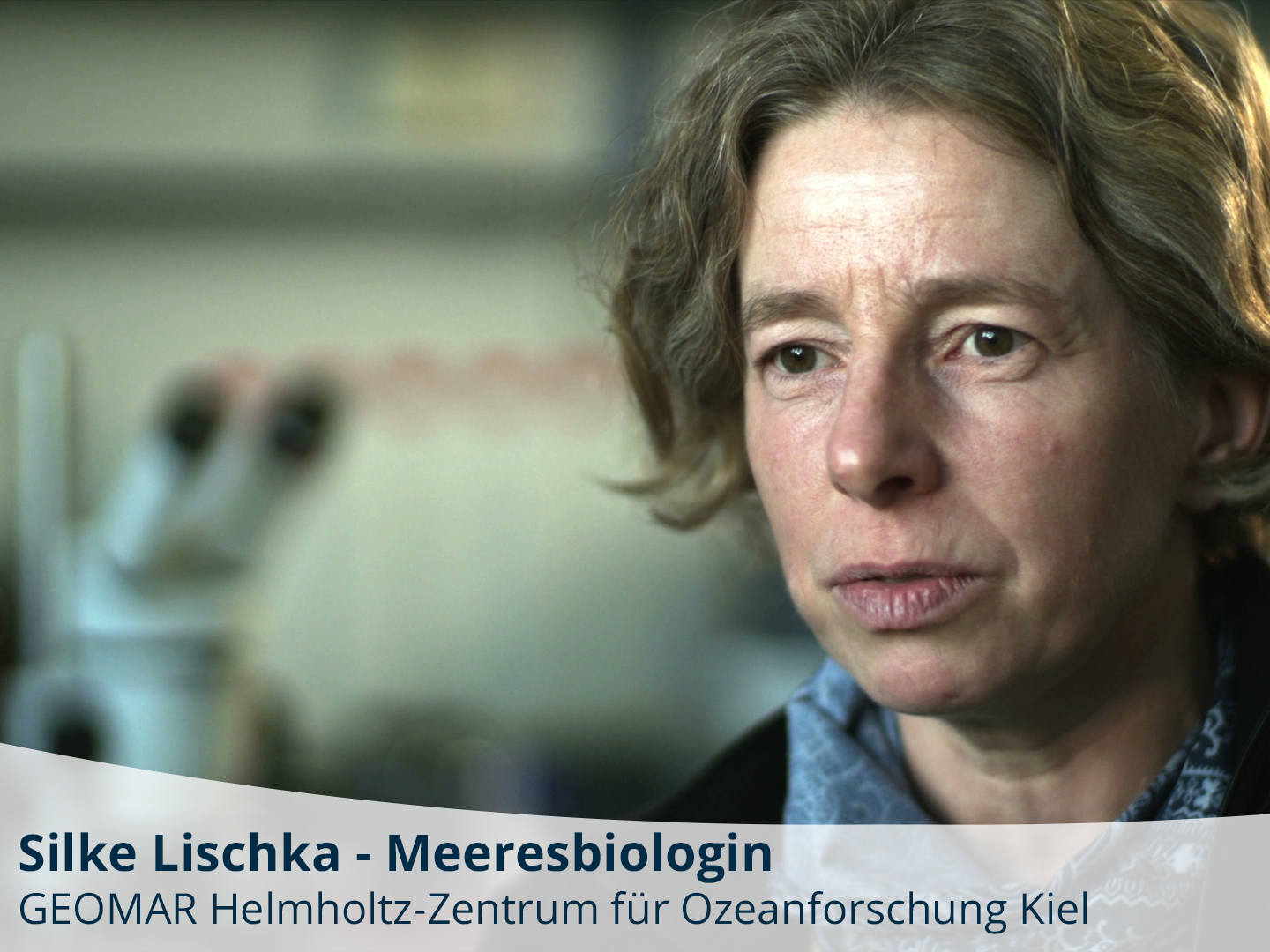Silke Lischka
Silke Lischka, Meeresbiologin am GEOMAR Helmholtz-Zentrum für Ozeanforschung Kiel ist eine Flügelschnecken-Expertin. Diese planktonischen Schnecken werden auch Seeschmetterlinge genannt, weil sie ihren Fuß, der zu zwei winzigen Flügeln umgebildet ist, nutzen, um durch den Ozean zu flattern. „Wenn ich sie sehe, freue ich mich über sie“, sagt Silke Lischka.
Aber die eleganten Organismen sind auch wichtig: Sie sind Futter für Fische, Seevögel und Wale – und sie fressen selbst auch sehr viel und halten so einen Teil des Nahrungsnetzes unter Kontrolle. Ozeanversauerung greift ihre empfindlichen Kalkschalen an. Als sie mit Flügelschnecken aus Spitzbergen arbeitete, stellte Silke Lischka fest, dass diese Tiere im hohen Norden besonders gefährdet sind. Sie haben eine Ruhephase im Winter und reduzieren in dieser Zeit auch ihren Stoffwechsel. So können sie schlechter auf negative Einflüsse von außen reagieren.
Weil es schwierig ist, Flügelschnecken im Labor zu halten, gibt es noch keine Langzeit-Beobachtungen, mit deren Hilfe sich besser abschätzen ließe, ob sie sich durch Evolution an Ozeanversauerung anpassen können. „Dann kann es auch sein, dass sie doch überleben und mit diesen sich-verändernden Umweltbedingungen viel besser zurechtkommen, als man jetzt von den Ergebnissen, die wir haben, denkt“, hofft Silke Lischka.
